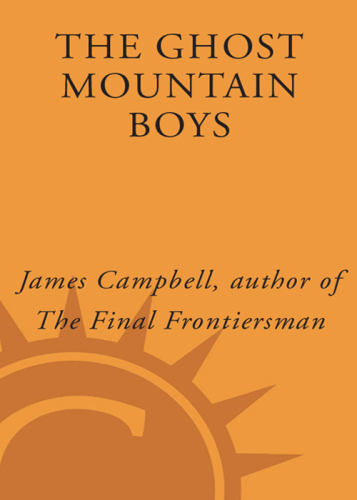
The Ghost Mountain Boys
Their Epic March and the Terrifying Battle for New Guinea—The Forgotten War of the South Pacific
- اطلاعات
- نقد و بررسی
- دیدگاه کاربران
نقد و بررسی

January 28, 2008
Campbell tells a largely unknown WWII tale of the 32nd Red Arrow division of the U.S Army and its trek through the rugged terrain of New Guinea to battle the Japanese. Stephen Hoye presents the remarkable account in a matter-of-fact manner, somewhat detached from the story while attempting to relay the information in a journalistic manner. As interesting as the story of this unprepared and ill-fated band is, Hoye fails to capture the adventurous aspect of this tale in his reading, which seems far removed from the story itself. Stylistically the reading is superb, offering a clear and professional narration. However, Hoye simply fails to keep the listener's interest throughout, presenting the story as a news documentary rather than a captivating account of these courageous individuals. The material itself is strong enough to warrant repeated listens, but Hoye offers little in the way of originality or spontaneity. Simultaneous release with the Crown hardcover (reviewed online).

October 1, 2007
Author Campbell (The Final Frontiersman) retraces the steps of the U.S. Army's 32nd Infantry Division, and its harrowing fight to capture Buna, New Guinea from the Japanese, in this grunt's-eye-view of one harrowing WWII mission. The 32nd was a National Guard Division that had made a name for itself on the battlefields in WWI, but by the time America entered WWII, they were less than prepared. Still, the division was shipped to Australia without any effective combat training, from which they were sent to navigate New Guinea's rain forests without any jungle training, or even proper supplies. Eager to take the fight to the enemy, the men of the 32nd were not ready for their fight against the island itself, a poorly mapped country with no overland roads, virtually impassable mountains, crocodile-filled swamps and disease-carrying mosquitoes. Campbell's novel-like retelling shows how they accomplished what many would call impossible, or at least suicidal; at the same time, Campbell accounts for the Japanese in New Guinea, who suffered the same, if not worse-both high commands viewed New Guinea as crucial, but not crucial enough to properly support. This intense narrative is a fitting tribute and an excellent, relevant illustration of that elusive phenomenon known as the fog of war.

July 1, 2007
Campbell's unit history and actual retracing of a National Guard battalion nearly destroyed in "Bloody Buna" is an absorbing account of the climax of the New Guinea campaign, perhaps MacArthur's worst-managed battle and a terrible ordeal for the seasoned Australian and raw American troops who fought there.
Copyright 2007 Library Journal, LLC Used with permission.

August 1, 2007
Campbell brings to vivid life one of the more forgotten, grislier campaigns of World War II, the Buna Trail campaign in New Guinea. The Japanese were trying to get a foothold on the south coast of the island, opposite Australia. The American Thirty-second Infantry Division had the job of driving them back over the Owen Stanley Mountain. It succeeded, at the cost of more than 10,000 casualties, four-fifths of them from tropical diseases contracted in the face of heavy rain, astonishing depths of mud, rugged terrain, perpetually rancid weather, shortage of supplies (including medicines), and, not incidentally, the Japanese. The most poignant part of the book consists of the letters of an army surgeon who eventually committed suicide, but every part of the book entitles it to a berth in WWII collections.(Reprinted with permission of Booklist, copyright 2007, American Library Association.)




دیدگاه کاربران